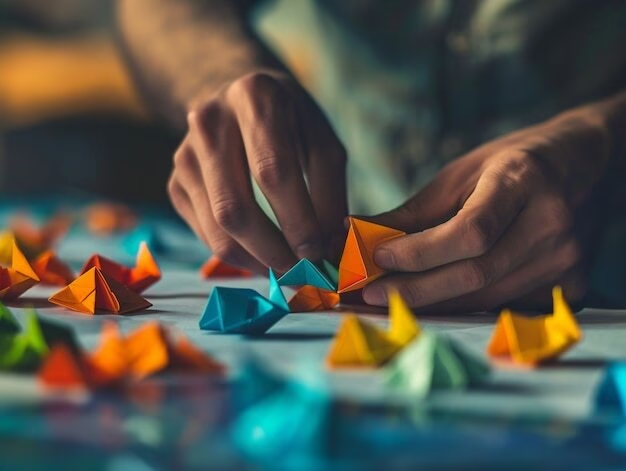Learning is a lifelong journey, and the way we approach it often determines how successful we become. Whether you’re a student striving to improve your grades, a professional trying to acquire new skills, or simply someone who loves to expand their knowledge, learning efficiently is key to achieving your goals. But what sets successful learners apart from the rest? What are the strategies, habits, and mindsets that they use to excel?
In this guide, we will explore the learning strategies, study habits, motivation techniques, and the mindset of successful learners. We will also share practical self-improvement tactics to help you transform your approach to learning, boosting your efficiency and effectiveness. If you’re looking to get better results from your learning efforts, you’re in the right place.
Let’s dive into the key secrets that successful learners use to thrive.
1. Learning Strategies: The Foundation of Success
Effective learning starts with the right strategies. It’s not about how many hours you spend studying, but how you study and the techniques you use. Successful learners know that mastering the art of learning is all about adopting the right approaches to absorb and retain information.
Active Learning: Engaging with the Material
One of the most powerful learning strategies is active learning. This means actively engaging with the material instead of passively reading or listening. Active learning techniques include:
- Summarizing key concepts in your own words
- Asking questions about the material
- Discussing topics with peers
- Teaching others what you’ve learned
When you engage actively, your brain processes and organizes the information, which helps you remember it better. It also enables you to apply your knowledge in real-life situations, making learning more meaningful and practical.
Spaced Repetition: A Smart Way to Retain Information
Successful learners understand the importance of spaced repetition, a technique where you review material over increasing intervals of time. Instead of cramming everything in one session, spaced repetition helps move information from short-term to long-term memory by reviewing it periodically.
There are many apps and tools available for spaced repetition, such as Anki and Quizlet, that help you organize your learning and ensure you’re reviewing material at the optimal time. This technique has been proven to significantly improve retention and recall, making it a vital strategy for successful learners.
The Feynman Technique: Simplifying Complex Concepts
Named after the renowned physicist Richard Feynman, the Feynman Technique is a method for understanding and remembering complex concepts. It involves explaining the material you’re learning in simple terms, as if you were teaching it to someone with no prior knowledge.
By doing so, you uncover gaps in your understanding and reinforce your knowledge in a way that ensures deeper learning. If you can’t explain a concept clearly, it’s a sign that you need to study it further. The Feynman Technique helps make abstract ideas tangible, making learning easier and more effective.
2. Study Habits: Consistency Over Intensity
Having effective study habits is crucial for becoming a successful learner. But what does it take to create productive and sustainable habits that fuel your success? Successful learners don’t rely on last-minute cramming or binge-study sessions. Instead, they prioritize consistency, creating a study routine that works for their lifestyle.
The Pomodoro Technique: Maximizing Focus and Efficiency
One popular and highly effective study habit is the Pomodoro Technique. This technique involves working in focused intervals—usually 25 minutes of study followed by a 5-minute break. After completing four intervals, you take a longer break (15-30 minutes).
The Pomodoro Technique helps break down study sessions into manageable chunks, preventing burnout and boosting concentration. Studies have shown that taking regular breaks enhances focus, productivity, and overall learning efficiency.
Prioritize Deep Work
Successful learners embrace the concept of deep work—a state of focused and undistracted work that allows them to accomplish tasks at a high level. In today’s world, distractions are everywhere, and many learners struggle with multitasking or staying focused. Deep work involves setting aside dedicated, uninterrupted time for learning, eliminating distractions like smartphones or social media, and working on one task at a time.
By prioritizing deep work, successful learners can achieve more in less time, enhancing the quality of their learning and improving their ability to retain and apply knowledge.
Create a Productive Environment
A productive study environment is essential for optimal learning. Successful learners know that their surroundings can significantly impact their concentration and performance. They create a space free from distractions, with everything they need within reach.
Whether it’s a quiet corner of a library, a desk with good lighting, or using noise-canceling headphones to block out background noise, the key is to create an environment that allows you to focus and stay engaged in your learning. A clutter-free workspace and proper tools can make a world of difference when it comes to productivity.
3. Motivation Techniques: Staying Inspired and Driven
Maintaining motivation is one of the greatest challenges for learners. It’s easy to get discouraged when you don’t see immediate results or when the material feels difficult. Successful learners, however, have developed techniques to stay motivated and keep pushing toward their goals.
Set Clear, Achievable Goals
One of the most effective motivation techniques is setting clear, achievable goals. Rather than saying, “I want to learn everything about physics,” break your goal down into smaller, more manageable objectives, such as “I will master the concept of Newton’s Laws this week.”
Setting small goals creates a sense of progress and accomplishment, which fuels your motivation to continue learning. It’s easier to stay motivated when you can see how each small step contributes to the bigger picture.
Find Your ‘Why’
Successful learners have a clear ‘why’ behind their actions. Knowing the purpose behind what you’re learning can reignite your passion and drive. Whether it’s advancing in your career, passing a critical exam, or gaining knowledge for personal growth, understanding why you’re learning helps you stay focused and energized.
Take a moment to reflect on your motivation for learning. Does the subject matter excite you? Are you learning to achieve a bigger life goal? Finding your ‘why’ will keep you on track when the going gets tough.
Visualize Your Success
Visualization is a powerful motivation technique. Successful learners often visualize the outcome of their efforts, imagining the feeling of accomplishment, success, and the benefits of what they’ve learned. Whether it’s visualizing the moment you pass a test, speak a new language fluently, or apply a new skill in your job, the emotional connection to your goals helps you stay motivated and committed to the process.
Visualization boosts confidence, reduces anxiety, and increases your commitment to achieving your goals. By picturing your success, you create a mental roadmap that keeps you moving forward.
4. Mindset of Successful Learners: The Key to Lifelong Learning
A growth mindset is one of the most essential qualities of successful learners. The concept, coined by psychologist Carol Dweck, is the belief that intelligence and abilities can be developed through hard work, effort, and perseverance.
Embrace Challenges as Opportunities
Successful learners don’t shy away from challenges. Instead, they view them as opportunities for growth. When faced with difficulties, they approach them with curiosity, knowing that overcoming challenges will make them stronger and smarter.
By adopting a growth mindset, you shift from a fixed mindset—where you believe that intelligence is static—to a mindset where learning is seen as an ongoing process. With this mindset, you embrace mistakes and failures as stepping stones to improvement, rather than obstacles that prevent progress.
Cultivate Patience and Perseverance
Success in learning takes time. There are no shortcuts. Successful learners understand that mastery comes with patience and perseverance. They know that progress may be slow, but it’s always steady if they continue to put in the effort.
This mindset of persistence allows learners to stay committed, even when results are not immediate. The more time and energy you invest in learning, the greater your eventual success will be.
5. Self-Improvement Tactics: Continuous Growth
To be a successful learner, it’s not enough to simply follow strategies and habits. You must also commit to self-improvement. Successful learners are always looking for ways to get better, to refine their learning methods, and to evolve into more effective and efficient learners.
Embrace Self-Reflection
Self-reflection is a powerful tool for self-improvement. Successful learners regularly take time to reflect on their progress, strengths, weaknesses, and areas for growth. By understanding what works and what doesn’t, you can continuously refine your strategies and improve your learning habits.
Reflecting on your experiences also helps you understand your learning style—whether you’re a visual learner, auditory learner, or kinesthetic learner—and adapt your methods accordingly.
Stay Curious and Open-Minded
The most successful learners remain curious and open-minded throughout their entire learning journey. They don’t close themselves off to new ideas, techniques, or feedback. Instead, they seek out new opportunities for growth and embrace the unknown.
Stay open to learning from others—whether it’s through books, podcasts, seminars, or mentorship—and be willing to challenge your own beliefs and assumptions. Cultivating curiosity fuels your passion for learning and propels you toward success.
Conclusion: Unlocking Your Potential as a Successful Learner
Becoming a successful learner requires more than just hard work—it requires the right strategies, habits, mindset, and a commitment to ongoing self-improvement. By adopting effective learning strategies, creating productive study habits, staying motivated, and cultivating a growth mindset, you can unlock your true potential as a learner.
Remember, learning is not a one-time event but a lifelong journey. Keep refining your approach, stay curious, and above all, never stop learning. The secrets to success are already within your reach—now it’s up to you to put them into action.


